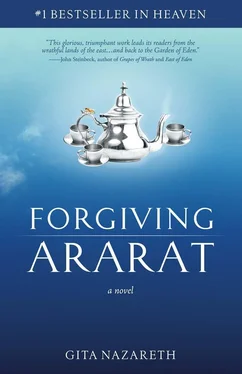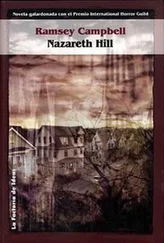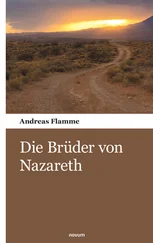Ott did, however, come to know his maternal grandmother well. Nonna Amina, he called her, even though she was actually his second cousin, only eight years older than his mother, and his real grandmother, Ilse Rabun, lie in a Kamenz churchyard beside the grandfather after whom Ott had been named. The close relationship between Amina and Ott was made possible by a miraculous remission in the cancerous relationship between Amina and Ott’s mother, Barratte Rabun, brought about in the same manner most forms of the disease are conquered: by nearly killing the body to save it.
Bill Gwynne and I could be thanked for administering the almost-lethal dose. Acting out of a sense of continued debt and gratitude for what Amina had done for the Schriebergs in Kamenz, my mother-in-law, Katerine Schrieberg-Wolfson, did not follow through on the threat made by her former lawyer, Robert Goldman, Esq., to sue Amina and Barratte Rabun in nineteen seventy-four. But in nineteen eighty-six, I, as a freshly minted lawyer married to Katerine’s only son-who was also a rightful heir to the Schrieberg fortune-convinced her to reconsider. The Rabuns had not only stolen Katerine and her brothers’ inheritance-which perhaps could be overlooked because Amina had saved them from certain death-but they had also stolen the inheritance of Katerine and her brothers’ children and grandchildren. This could not be overlooked. These future generations were entitled to their share of the estate created by their ancestors. As a potential mother of the next generation, who as a Christian had spoken to Katerine about converting to Judaism, and who happened to work for one of the most respected and aggressive lawyers in the nation-my arguments on this point received added weight. Bill Gwynne also loved the idea-not only because the contingency fee if we won would be substantial and I would be earning my keep as a new associate-but because it was a high profile international case filled with broader implications for the recovery of assets confiscated by the Nazis. After much prodding and encouragement by Bo, Bo’s father, Katerine’s surviving brother, and me, Katerine reluctantly consented.
Bill and I promptly initiated the lawsuit, making it every bit the publicly embarrassing spectacle for Amina and Barratte Rabun promised in Mr. Goldman’s letter. Bill was a master, both in the court of law and the court of public opinion. I watched in awe, helping him behind the scenes. This was the type of case lawyers wait for their entire careers, but there I was, working on it fresh out of law school. From a torrent of Hague Convention subpoenas, we obtained from German archives copies of contracts signed by Amina’s father for the construction of the crematoria at Osweicim and Majdanek. Although these documents bore no direct legal relevance to our claim for recoupment of assets derived from the Schriebergs’ theaters and home, they made sensational copy. Soon the publisher of the award-winning Lockport Register was being tried in the media as a war criminal-and Jewish groups were calling for a boycott of her bloodstained paper and the bloodstained books of Bette Press.
These war contracts were the first solid pieces of evidence Amina and Barratte had seen of their fathers’ involvement in the Nazi death camps, and they were devastated. Even so, they had been through far worse during the war, and in facing this new common threat they found again the mutual love and trust for each other that had sustained them during those terrible days, weeks, and months after Kamenz. Plus, now, there was young Ott to think of. With Amina’s refusal to bear children, Barratte’s twelve year old son held the only hope for a new generation of Rabuns. With the survival of the family at stake, the cousins held each other and turned their backs against the coming storm, unyielding even when Bill and I convinced the Buffalo Evening News to print portions of Patentschrift Nr. 881 631, Verfahren und Varrichtung zur Verbrennung von Leichen Kadavern und Teilen davon , issued in 1941 to Jos. A. Rabun & Sons. This patent, also obtained from German archives, had been secured by Amina’s father, Friedrich Rabun, to prevent his competitors from using his improved crematoria design, first installed at Osweicim, that utilized better airflow management, ash removal conveyors, and new refractory materials to elevate temperatures and increase capacity. In the accompanying technical drawings, Amina recognized the shape of the brick sandbox built by her father for her and Helmut. This vulgar resemblance, and the photographs of thousands of cadavers in the camps, haunted Amina’s dreams the rest of her life.
Yet, the Rabun women fought back against even this disgrace. In interviews and editorials, they explained how Amina had saved the Schriebergs at great personal risk; how the purchase of the theaters had been for fair value at the time, giving the Schriebergs the money they desperately needed to survive; and how just a few hundred yards from where the Schriebergs lived under her protection, the Russians raped her, Barratte, and Bette and murdered their family. Coming from the mouths of the accused, however, and countered by the damning archive documents and the Rabuns’ great wealth, these stories did little to change public opinion. Amina and Barratte Rabun were tried and convicted not for wrongfully withholding the Schriebergs’ money, about which no one seemed much concerned, but, symbolically, for perpetrating the Holocaust itself.
The final, nearly fatal blow to Amina and Barratte Rabun came not from Bill Gwynne and me but from Amina’s once-loyal secretary, Alice Guiniere. Wearing her finest go-to-church print dress one early autumn day, Alice recounted under oath before a grand jury the mysterious visit to her employer’s office by a Mr. Gerry Hanson-a man known formerly, she believed, as SS Colonel Gerhardt Haber. During this testimony, she produced galley proofs of five United States passports bearing the Habers’ new identities, collected from a waste bin in the print shop of Bette Press. Dabbing her eyes, she explained that something just didn’t seem right that day and she thought she ought to save the proofs, just in case. It was a sense of patriotism, she insisted-not vindictiveness for her recent firing by Amina in an attempt to reduce expenses and save the paper-that compelled her to come forward now after all these years.
The grand jury indicted Amina, the Habers, and Albrecht Bosch; and the United States Attorney held a press conference. Standing before a nearly-hysterical throng of reporters and photographers, the ambitious prosecutor confirmed Gerhardt Haber’s status as an international fugitive and war criminal and unveiled several easels attached to which were fiendish photographs of the SS Colonel in full black dress uniform and photographs of the identical man, Gerry Hanson, dressed in civilian clothing, together with the galley proofs of the forged passports and the front page of that day’s Lockport Register . Amina and Albrecht were charged with obstruction of justice, harboring fugitives, and forging official documents, for which they each could be sentenced to thirty years imprisonment. The prosecutor also disclosed that discussions were being held with the Department of State about extraditing the Habers to Germany or Israel. Not lost on a few sympathetic newspaper editors was the harsh irony that for assisting the Schriebergs in Germany in the same manner that Amina had assisted the Habers in the United States, she could have been hanged. “No good deed goes unpunished,” one editorial concluded, and “whether a deed is good or not appears to be a matter of opinion at the time-primarily the opinion of those operating the levers of state.”
With all energies turned to the criminal defense, Amina’s lawyer called Bill Gwynne with an offer to settle the civil litigation. In light of everything that had befallen Amina, and everything that had happened in Kamenz, Katerine Schrieberg-Wolfson instructed us to accept the offer-seventy-five percent of our original demand-and end the litigation immediately.
Читать дальше












